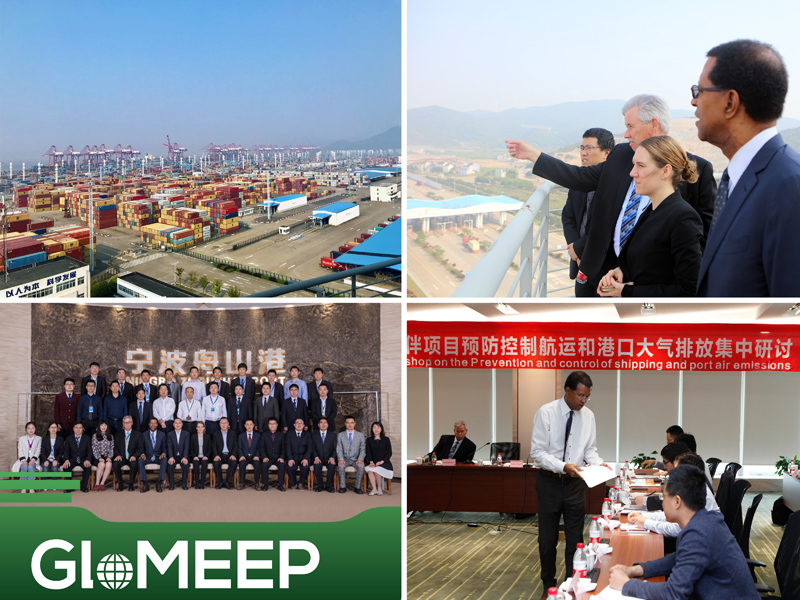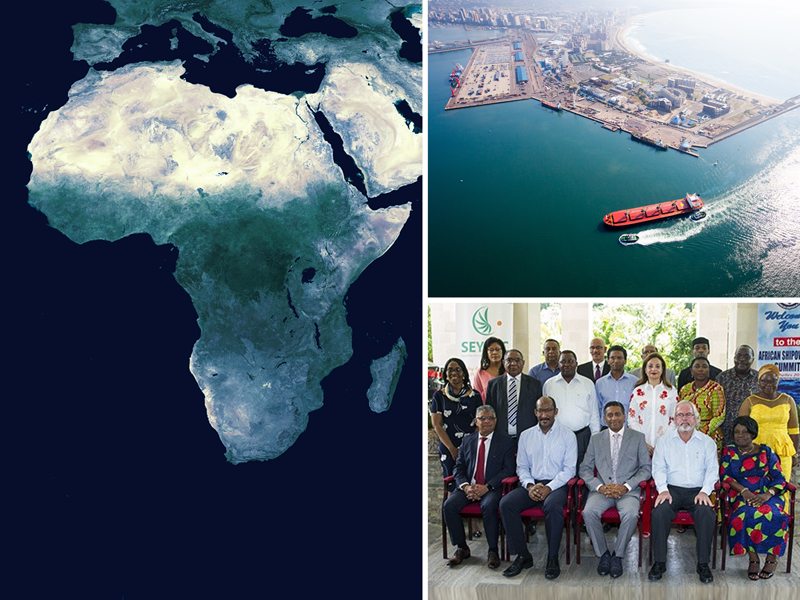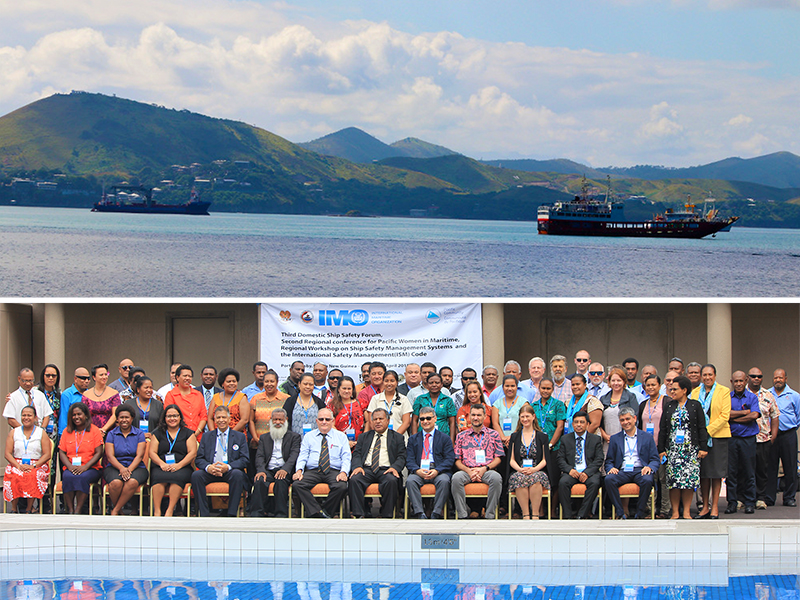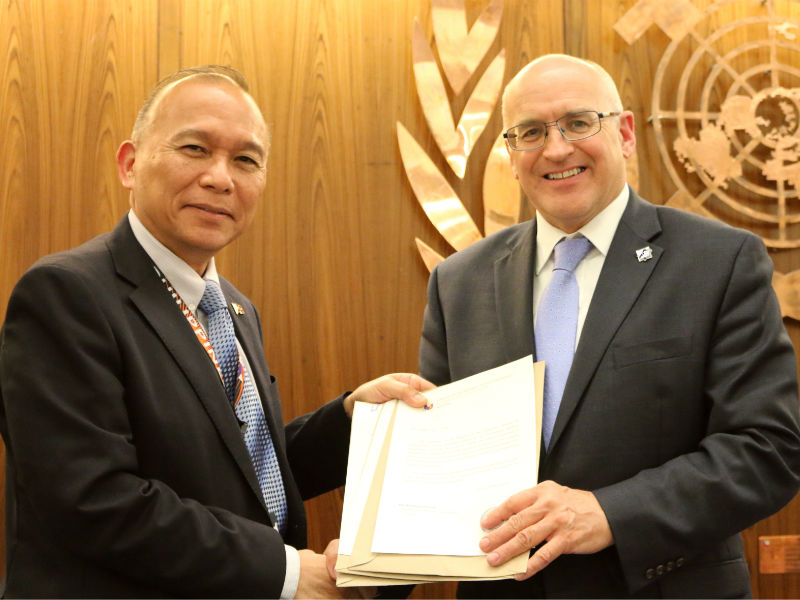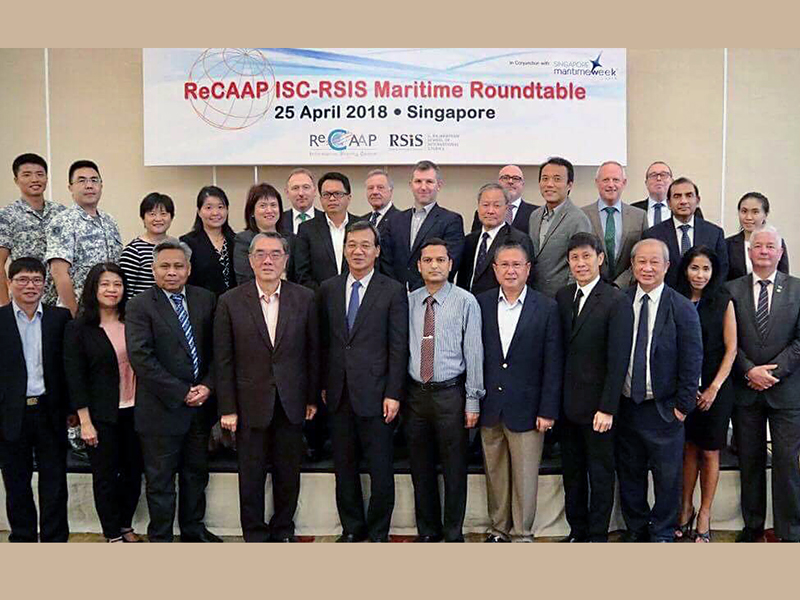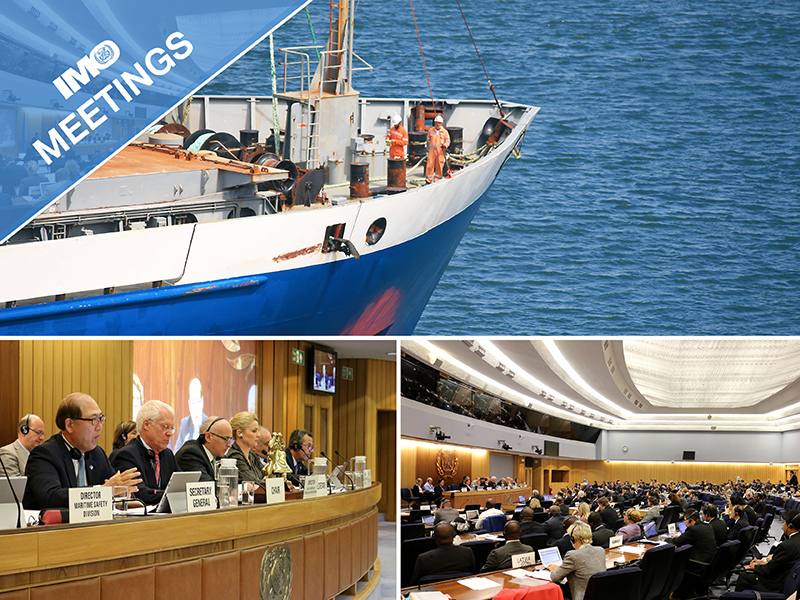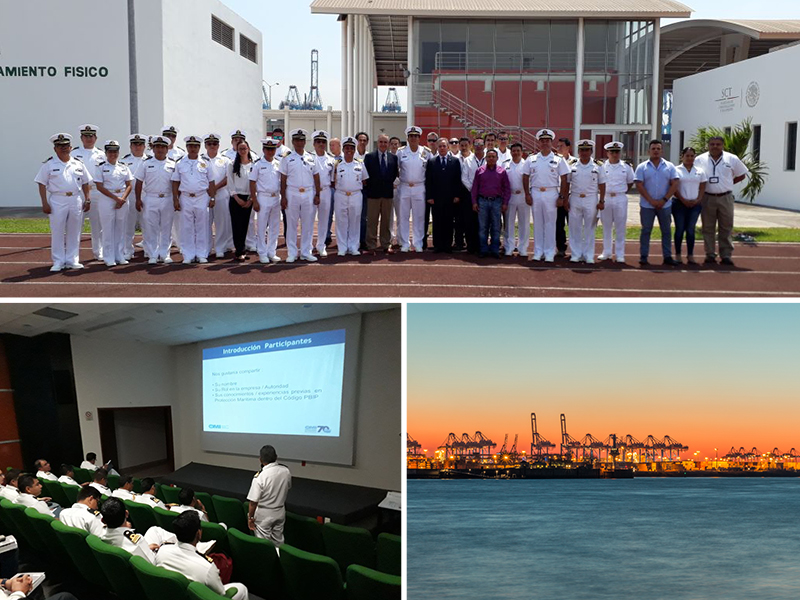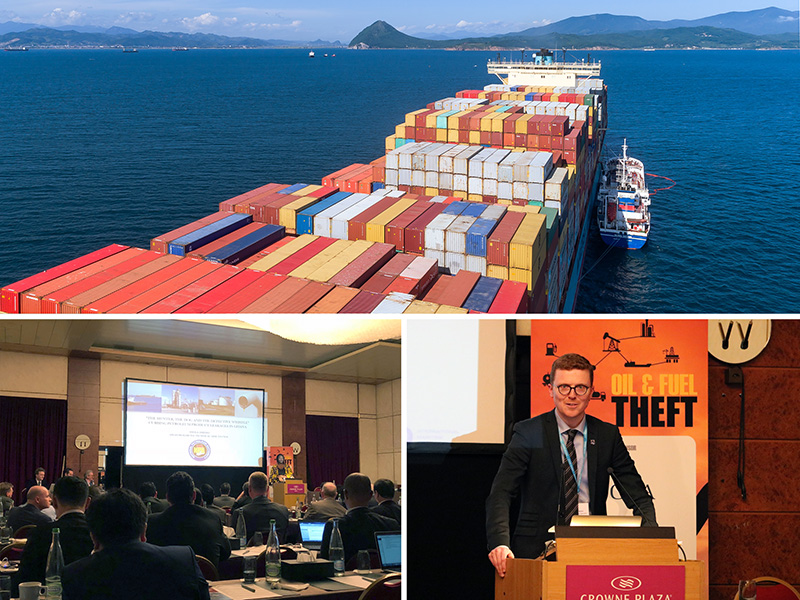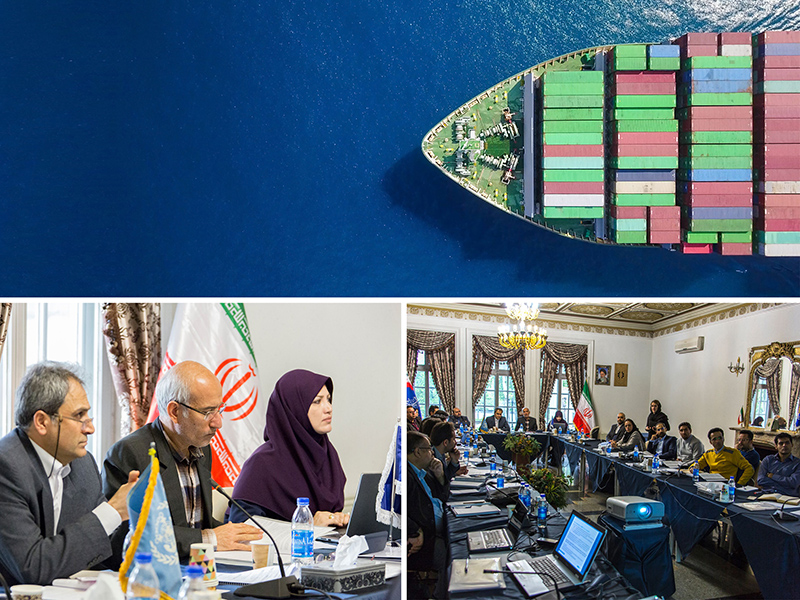Whats New 2018
Emissions in ports under the spotlight
Assessing emissions in ports can help countries to devise strategies to address those emissions, leading to better air quality for local populations. The first national workshop on the prevention and control of shipping and port air emissions has been held in Ningbo, China (23-25 April), under the auspices of the IMO-executed GloMEEP energy efficiency project. China is the first country to benefit from the rollout of the three-day workshop package which was recently developed by GloMEEP, in collaboration with the International Association of Ports and Harbors (IAPH). more...
Supporting IMO’s African Member States
IMO has
reaffirmed support for its African Member States at the first African
Shipowners Association Summit, held in the Seychelles (23-25 April). IMO’s
Juvenal Shiundu delivered a goodwill message on behalf of IMO Secretary-General
Kitack Lim, emphasising the Organization’s on-going technical cooperation
support for its African Member States – to help implement IMO treaties. more...
Progress on safety of domestic ferries
Domestic ship services is a major part of the transport system in Pacific Island Countries. To address key concerns surrounding the safety of domestic ferries, a three-day event was held in Port Moresby, Papua New Guinea (23-25 April). One major outcome of the forum was the adoption of a community-based approach which aims to involve end users of domestic ship services to improve awareness as well as to enhance safety measures. more...
Philippines accedes to air pollution and energy efficiency rules
The Republic of the Philippines has become the latest country to accede to the IMO instrument providing rules for the prevention of air pollution from ships and energy efficiency requirements. This brings the total number of ratifications of MARPOL Annex VI to 90, representing 96.5% of world merchant shipping tonnage. The Philippines also deposited its instruments of accession to the 1988 Protocol to the International Convention on Load Lines (LL), 1966; and the 1978 Protocol to the International Convention for the Safety of Life at Sea (SOLAS), 1974. more...
Seafarer issues to the fore at IMO Legal Committee
The increase in the
number of reported cases of abandonment of seafarers is expected to be
highlighted during the 105th session of IMO’s Legal Committee (23-25
April). A joint International Labour
Organization (ILO)/IMO database recorded 55 such cases during 2017, against an
average 19 annually during the preceding three years. Seafarers may be left
without proper supply of food and fresh water, without wages and resources for
their families and with no prospect of being repatriated. (Click for photos) more...
Better prepared against security threats
Mexico has hosted a five-day workshop on IMO's International Ship and Port Facility Security Code (ISPS Code), which sets out preventive security measures in case of threats to ships and port facilities. Designated authority and port facility security officers had the chance to improve their knowledge and understanding through practical exercises. more...
Tackling oil and fuel theft
Oil and fuel theft is a major, global challenge in the maritime industry, with potential widespread repercussions, ranging from ecological damage to depriving governments of customs and tax revenues. IMO participated in the inaugural Oil & Fuel Theft conference (18-19 April) in Geneva, Switzerland. The conference brought together governments, oil majors, energy industry companies and national security stakeholders to understand and shed light on the scale of the problem and examine ways to combat this issue.
Oil and fuel theft typically takes place in the maritime domain, with oil tankers accounting for a fourth of global trade. But law enforcement control over vast maritime spaces is often hindered by scarcity of resources. Largely ignored forms of hydrocarbons crime pose a very real threat to regional and global stability, security, and prosperity. Downstream oil theft is not merely an end in itself; it is also a means to the criminal ends of terrorist groups, organized crime syndicates, and violent insurgents which must be addressed as a global issue.
IMO's Henrik Madsen addressed the conference during a session on Maritime Piracy: Measures to ensure the security of oil and fuel assets. Mr. Madsen highlighted IMO’s maritime security initiatives and its capacity-building work in regions such as the Gulf of Guinea, where the organization supports the implementation of the Code of Conduct concerning the repression of piracy, armed robbery against ships, and illicit maritime activity in west and central Africa.
The conference was organized by Defence IQ in partnership with the cantonal government of Geneva.
Training on ship air pollution and low carbon measures
Iranian officials responsible for
implementing IMO standards on air pollution and greenhouse gas emissions
from shipping are undergoing IMO training at a national workshop in Tehran,
Islamic Republic of Iran (16-18 April). Around 30 participants from the
country’s Ports and Maritime Organization (PMO), Department of Environment and
numerous ports are taking part. more...
